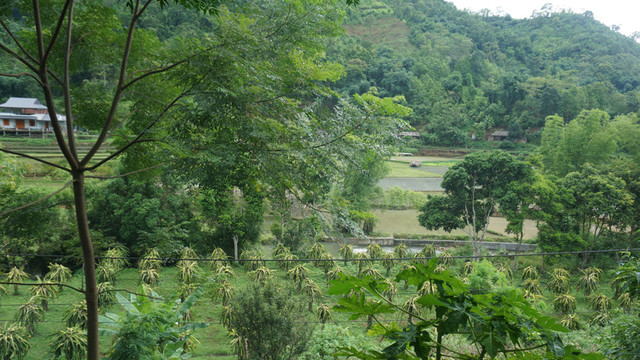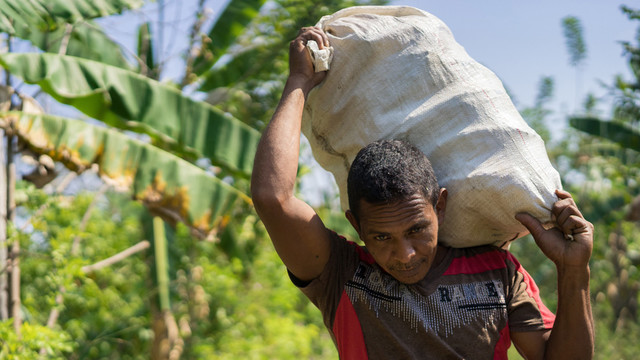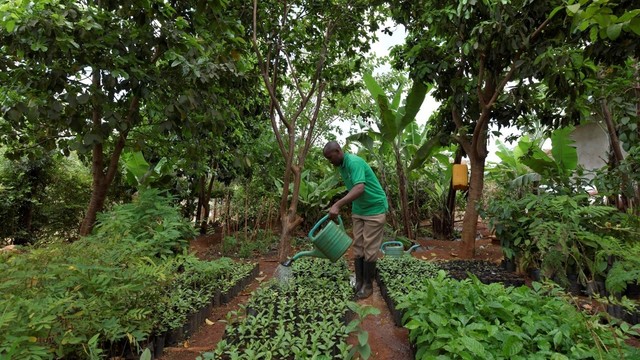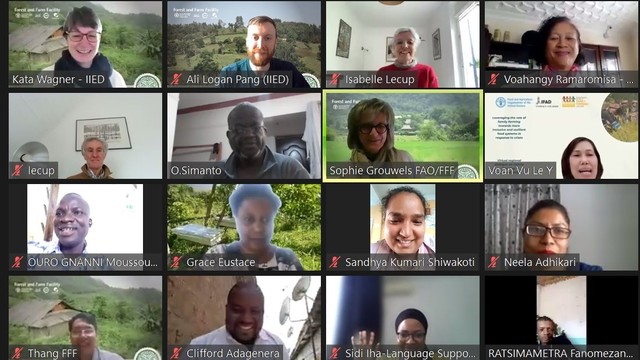New roadmap for boosting small-scale and family forest producers
Six steps to increase forest productivity and improve livelihoods of local communities

Forests image
Indigenous peoples, local communities and private smallholders own or manage a growing proportion of the world's forests and can play a significant role in tackling deforestation and reducing poverty – especially if they band together in producer organisations, say two new publications released today by FAO and a group of its partners.
In many rural economies, the forest enterprises of families and communities are major contributors to local livelihoods. Unfortunately, the vital role that they play is often overlooked in government policies.
A crucial constraint is their isolation from each other, from markets, information, business services, policymakers, financing and investment opportunities.
Two policy papers, published today by the Forest and Farm Facility (FFF) – a partnership between FAO, the International Institute for Environment and Development (IIED) and the International Union for Conservation of Nature (IUCN) – argue that a better policy environment, coupled with targeted support to help small-scale forest and farm producers organise themselves into forest producer organisations could turn this situation around.
"Coming together in forest and farm producer organisations can help overcome their isolation as well as other very real constraints such as a lack of secure forest tenure and financial and business development instruments," said FAO forestry officer Jeffrey Campbell. "They must compete with large-scale businesses that often receive preferential treatment, access to markets, financing and resources."
"Governments need to provide legal status and services for organisations of small-scale forest and farm producers which will serve their interests and help reduce rural poverty," he added.
"The support for forest and farm producers, encapsulated within the Forest and Farm Facility, is critical. It is critical to unleash the potential of locally controlled forestry – reducing poverty and protecting forests – together," said Duncan Macqueen, principal researcher of IIED.
"As a group, smallholders and community and Indigenous Peoples forest producers play a major role in global trade, and yet are often overlooked when we talk about the role of the private sector in forest landscape management and restoration," says Chris Buss, deputy director of IUCN's Forest and Climate Change Programme. "It is crucial therefore to ensure forest producer organizations are strengthened and empowered if we are to scale up efforts in order to achieve goals such as Bonn Challenge to restore 150 million hectares of degraded and deforested lands by 2020, which will in turn contribute to delivery on international climate, biodiversity and development targets."
Pathway towards strengthening small-scale forest producers
The new policy brief offers six key recommendations to develop effective forest producer organisations, reduce poverty and improve livelihoods of forest-dependent people:
- Encouraging knowledge sharing and increasing the visibility of forest and farm producer organisations in policymaking;
- Developing incentives to strengthen locally controlled forestry and facilitating networking among forest and farm organisations;
- Creating supporting legal frameworks, protecting forest tenure rights of indigenous people, local communities, removing regulatory barriers, securing access to support services, especially extension services;
- Providing forest and farm organizations and their members with greater access to financial services, such as affordable credit and insurance;
- Connecting forest smallholders to markets and services, including negotiation of fair market prices and provision of real-time market information;
- Building a worldwide coalition of forest and farm producer organisations to influence policymaking and generate momentum for greater support.
Learn more:




